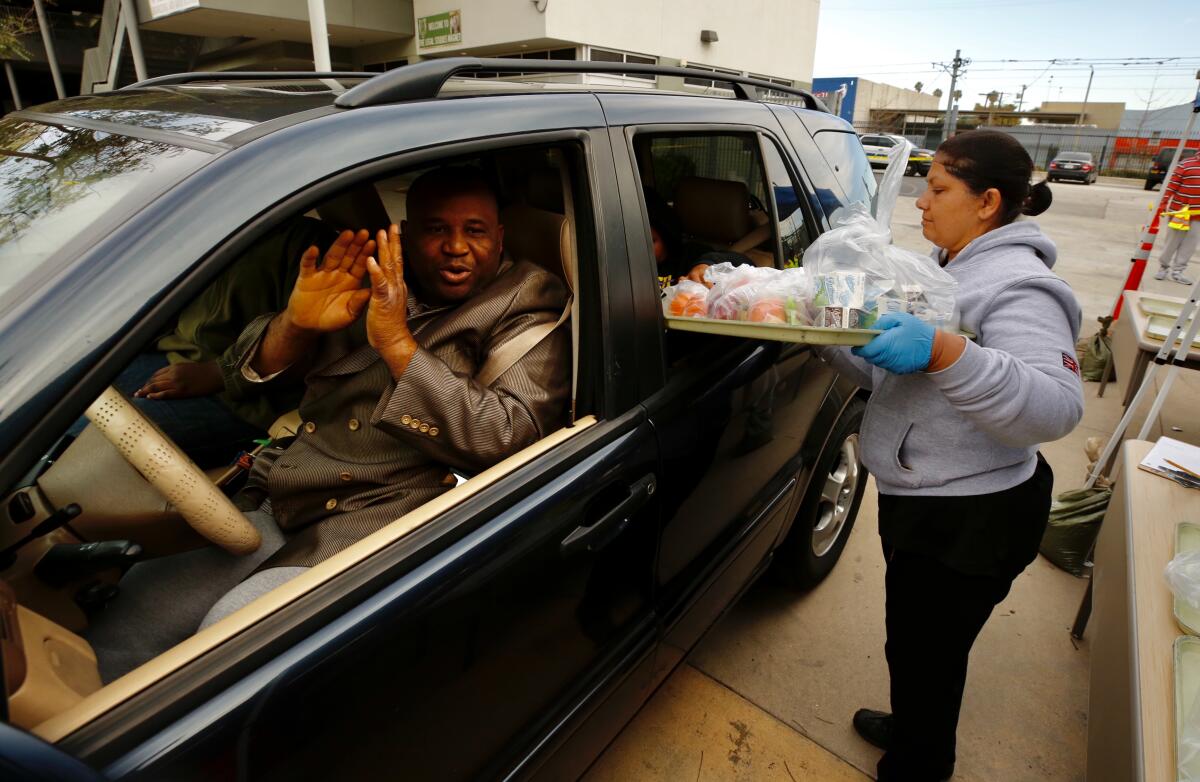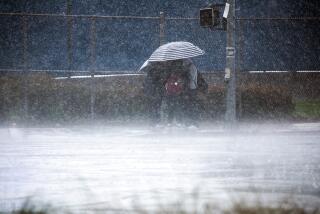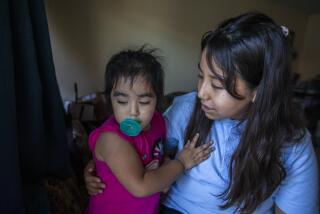How long will California schools be closed for coronavirus? Here is what we know

- Share via
It’s the question parents across California want to know: How long will schools be closed because of coronavirus?
Virtually all schools across the state are closed and there has been hope that it might last only a few weeks and include spring break in many districts. But Gov. Gavin Newsom said Tuesday that schools might need to stay closed through the end of the academic year in response to the coronavirus emergency.
Both state and local officials stressed that no decision has yet been made about keeping schools shuttered through June and said those assessments are being made on an ongoing basis.
Here is what we know:
So what did Newsom and other state officials say?
Newsom told parents and educators that he expected the state’s public schools to remain closed in response to the spreading coronavirus pandemic — a disruption that would affect the education of 6.1 million students and their families.
“Don’t anticipate schools are going to open up in a week. Please don’t anticipate in a few weeks,” Newsom said. “I would plan, and assume, that it’s unlikely that many of these schools — few, if any — will open before the summer break.”
State Supt. of Public Instruction Tony Thurmond said Tuesday night that Newsom’s comment offered an assessment of the future school year with closed campuses. But as of now, he said, “there is no declaration that school is over for the year.” He said school districts needed to be fully prepared to shift their method of instruction.
He added that officials had not yet discussed the potential option of extending the school year into the summer.
“We’re not going to know exactly what we need to do until we have a sense of how this is all going to go,” Thurmond said.
On Wednesday, Thurmond will lead a statewide call for school district leaders to examine the state’s new guidelines on how to operate, including online learning and meal distribution.
What is the view on the local level?
Los Angeles school board member George McKenna said it’s too early to tell whether school is done for the year.
“I think that gives people the wrong message that it’s a definitive, that schools would be out for the rest of the year. And that’s not true. We don’t know yet,” he said. “I know that we need to keep our children safe, but we can go overboard, and you can see the community going overboard with hoarding and wiping out what’s in the markets and all of that. But I think some stability will come in a couple of days.”
McKenna said the school board and senior leadership would reassess the situation Monday as they plan next necessary steps. The district is doing what it can to provide academic support to students, he said. But L.A. Unified students already were dealing with inadequate resources and the coronavirus crisis only exacerbates that problem.
“It’s a tough thing and parents have to leave the home to go to work — those who can go to work. So what happens to the children? There’s a question we’re not answering now. We’re just saying: ‘Do the best you can and we’re with you and we love you,’” he said. “But it feels sometimes like we’re flying the plane and repairing it at the same time.”
L.A. schools Supt. Austin Beutner declined to speculate on how long schools would be closed or to respond directly to the governor’s prediction, but said the district was continuing to refine plans for ongoing instruction off campus.
“We’re continuing to make sure students are learning,” he said. “We’re doing the best we can to provide support to those most in need.”
“These are not ordinary days, but our students still need help,” he added. “So we’re here together with our partners from the Red Cross to make sure that we do the best we can to take care of students and families.”
What about school meals?
One challenge with school closures is feeding kids in need, who rely on schools for their weekday breakfast and lunch, sometimes even dinner.
In California, 60% of students qualify for free or reduced-price meals because they are members of low-income households. In Los Angeles public schools, the percentage is even higher, with 80% of students who qualify; in Compton, it’s 83%; Pomona, 89%.
Nationwide, well over half the states in the country have also closed their public schools or ordered them to close in the coming days.
More than 400,000 “grab-and-go” meals were being distributed Wednesday morning to Los Angeles students and families, Across the state, school districts from San Francisco to Fresno and San Diego have been setting up to do the same.
Lisa Melhouse, associate director of the California Department of Education’s Nutrition Services, said that creative workarounds and partnerships have popped up across the state. In rural areas, she’s seen districts use school bus routes to reach students. Food trucks, community centers and food banks have also offered to find ways to help not just the students, but also their families.
“I’m just so impressed with so many school districts that are jumping on this so quickly to make sure their students are fed,” she said. “I can’t say it enough.”
More to Read
Sign up for Essential California
The most important California stories and recommendations in your inbox every morning.
You may occasionally receive promotional content from the Los Angeles Times.












